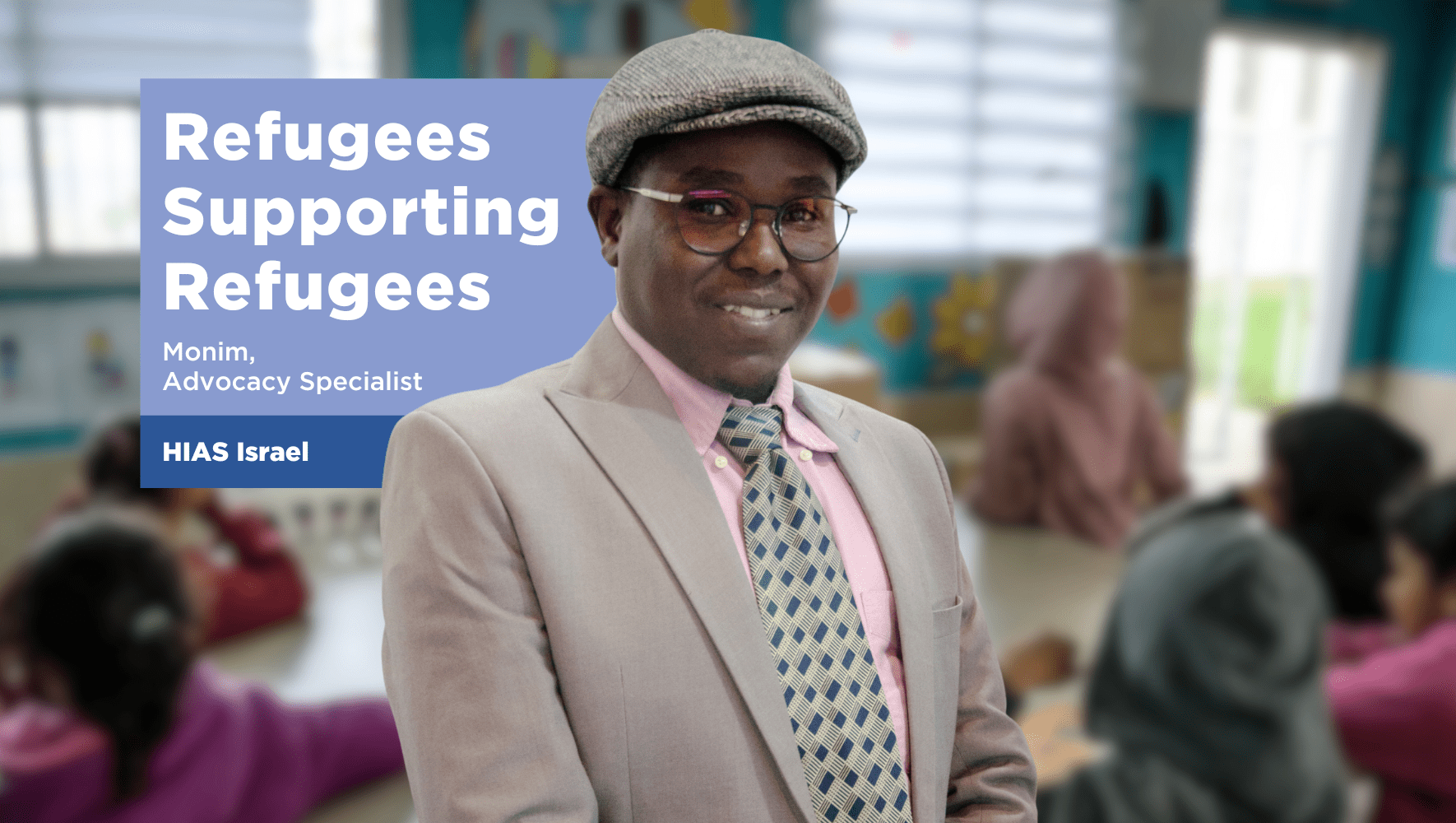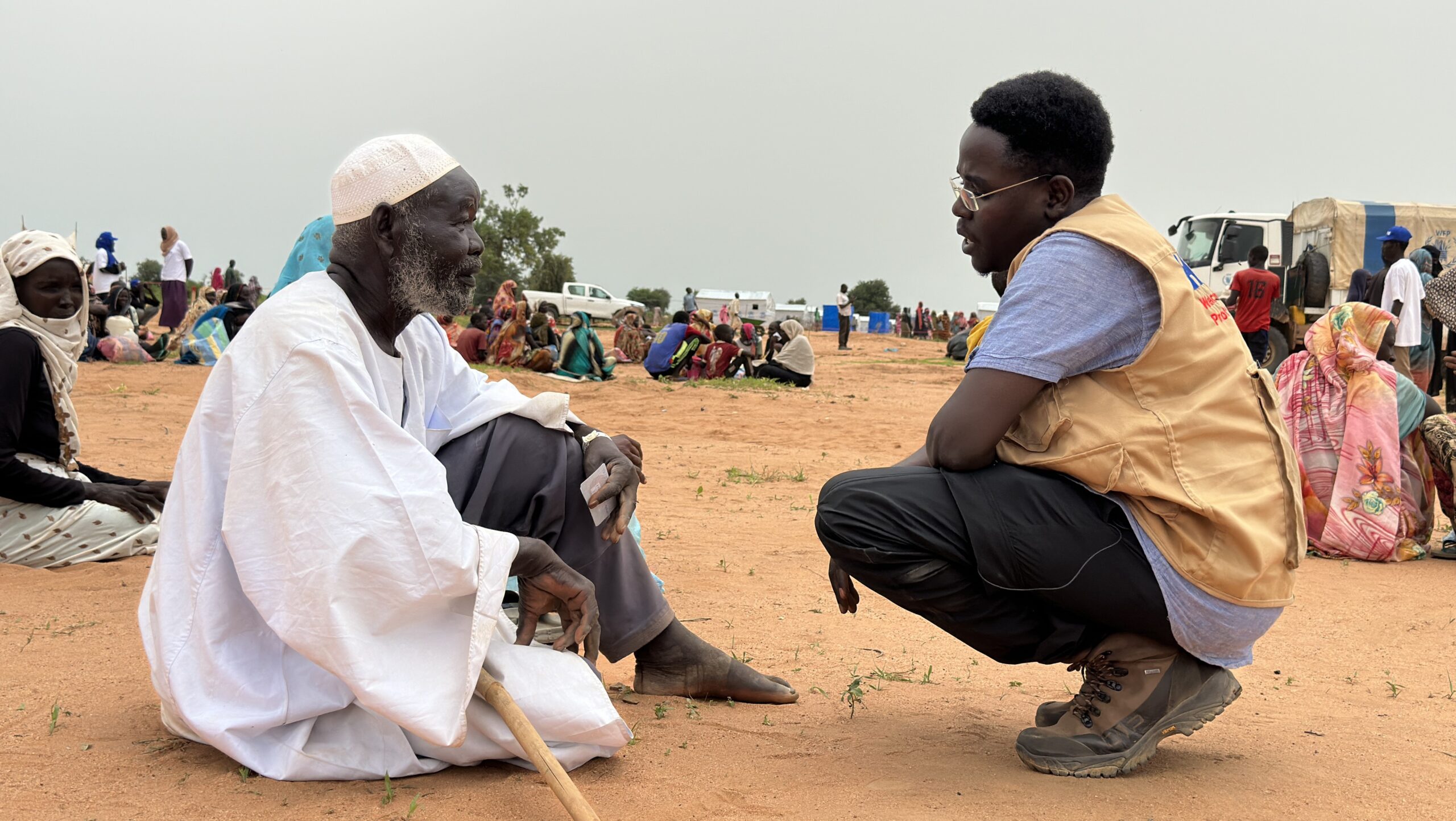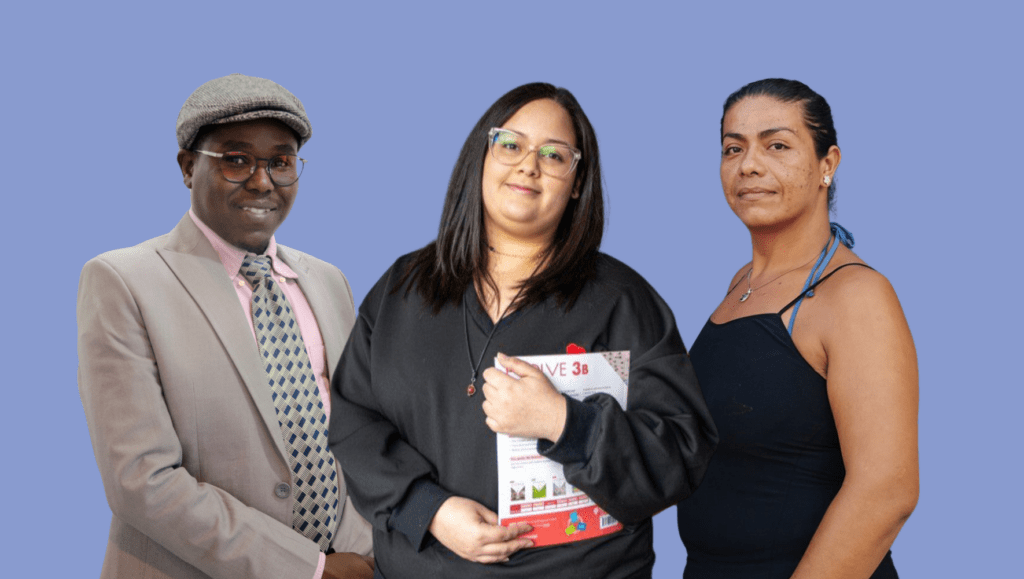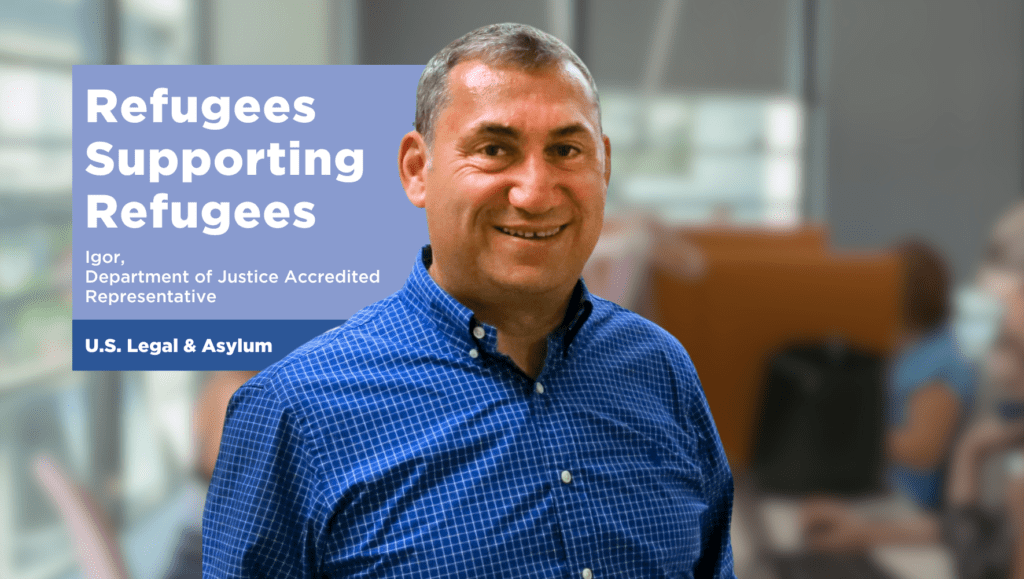
Many of the hundreds of HIAS staff around the world were once refugees themselves. In our new series Refugees Supporting Refugees, we tell these colleagues’ stories. Read earlier articles in this series here.
Monim Haroon has told his story many times before.
A Sudanese refugee from Darfur who escaped to Israel, Monim has been profiled in newspapers, spoken at conferences, and explained to countless people how he had to choose between death and an unknown future in a different country.
Although it can be difficult for him to recall every detail, Monim continues to tell his story in hope that it will raise awareness and that conditions for other refugees will improve.
“When we deny people their stories, we are denying their humanity,” he said.
When we deny people their stories, we are denying their humanity.Monim Haroon
The Past Affects the Future
From an early age, Monim was was politically and socially active. Part of a nationwide student group that was calling for a democratic and liberal state, Monim spoke at political panels and organized protests. Just before war broke out in 2012 a senior government official told Monim to leave the state immediately because he was on the government’s most wanted list and would be arrested once the war started. Monim packed what he could and literally walked away, crossing multiple deserts barefoot, and often without water or food. At the Sinai border between Israel and Egypt, he hid from Egyptian authorities for fear of being sent back.
Given that he thought he would die along the way, Monim’s arrival in Israel felt miraculous. When he entered Israel, he was greeted by soldiers at an army base and permitted to rest. Finally safe, he had his “best sleep in 10 years.”
Real freedom, though, would initially prove elusive. Monim was one of thousands of African asylum seekers who were sent to the Saharonim Prison, which the Israeli government used to detain and reportedly coerce them into “willingly” leaving the country. Monim stayed at Saharonim for a year and a half, then was sent to Kzi’ot prison and Holot detention center for an additional year, and finally released in 2015.
In prison Monim began to see how people fleeing for their lives should never be treated as criminals and instead should receive protection and compassion.
“I realized the important thing that was missing was a sense of welcoming, recognition, and understanding,” Monim said.

Monim Haroon speaking to a newly arrived elderly refugee from Sudan during a food distribution event organized by HIAS in Ourang refugee camp, eastern Chad. August 26, 2023. (Barbara Cervantes/HIAS)
Working With HIAS
Monim first went to the HIAS office in Israel in 2017, where he met Nimrod Avigal, HIAS Israel’s director of legal aid, who agreed to take on his case. Avigal was ultimately successful in helping Monim obtain temporary residency.
“It literally changed my life,” he said.
Monim was inspired to go into the asylum seeker community and get more potential cases for HIAS to work on. Eventually he helped bring about 600 cases to the legal team.
It was his personal experience that led Monim to become an activist once again, this time for displaced people — a population whose needs in Israel remain substantial.
Only about 1% of the estimated 30,000 African asylum seekers in Israel have been recognized as refugees. The vast majority can only hope to obtain temporary status, which allows them to stay legally and work but with no other rights. Many feel, as Monim does, that the government — which has labeled refugees as “infiltrators” — has done everything to make asylum seekers’ lives difficult.
Initially a volunteer, Monim is now in his fourth year as a full employee. “I started as a beneficiary and then became a colleague,” he said. He knows how hard it is to live in Israel with a temporary status but has hope that things will change. “We are not recognized by the state, but we need to move ahead,” he said.
Meanwhile, Monim finished his undergraduate degree in Israel and is now pursuing a master’s in public policy at the Hebrew University of Jerusalem. But with his deep passion for his work, he is not looking to leave his job anytime soon.
“I feel lucky to be at HIAS,” he said.



